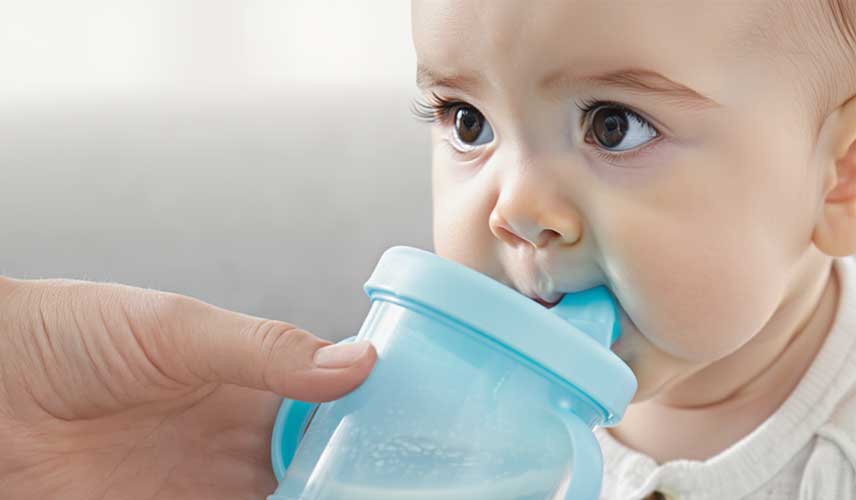
10 Things to Do for a Healthy Pregnancy

Pregnancy does not proceed the same way for every woman. Some experience this period of life quite comfortably, while others face serious difficulties. To have a healthy pregnancy, it is important to pay attention to certain points, but under normal circumstances, it does not require doing very different or varied things. This is not an illness; it is a physiological process. Therefore, things that were previously healthy and good for a woman remain so. The process involves two people, but this does not require you to eat for two, as you do not have a significant extra energy need. However, it is important for both the mother and the baby's health to eat a balanced and healthy diet and to take the necessary vitamin and mineral supplements.
Health Tips for Pregnancy
1. Consult a Doctor When You Plan to Get Pregnant
The general tendency is to start routine doctor check-ups after becoming pregnant, but it is more appropriate to do this after planning to conceive. This way, you can learn many things, from what you need to do to get pregnant quickly to whether you have any issues that could negatively affect the baby.
2. Pay Attention to Healthy Eating
While expecting a baby, you should eat vegetables and fruits every day and consume dairy products. Balanced nutrition is more important now than ever. You should ensure that you are getting enough protein and carbohydrates daily. It is advisable to choose whole grains for your carbohydrate intake. In the meantime, you should also be careful not to consume unnecessary calories.
3. Use of Folic Acid
It is recommended to use folic acid, also known as folate or vitamin B9, during the first 3 weeks of pregnancy. In fact, if you plan to get pregnant in advance and consult a doctor about it, they will likely recommend that you start taking this vitamin 6 weeks before conception. One of the most important benefits is its potential to prevent congenital anomalies related to the brain and spinal cord.
During pregnancy, the body's need for folic acid increases, and it is not very possible to meet the required amount through diet. For this, you would need to consume half a kilo of spinach or nearly 1 kilo of broccoli every day. Therefore, it would be beneficial to use folic acid, which is thought to reduce the risk of neural tube defects that affect important biological processes such as new cell formation and blood production, according to your doctor's recommendations.
4. Exercise Regularly
Exercising during pregnancy helps you carry the extra weight more comfortably, increases your strength and endurance, makes it easier to return to your pre-pregnancy form after birth, and helps maintain a positive mood. Of course, you should consult your doctor and engage in sports that are suitable for your current stage and condition.
5. Avoid Smoking and Alcohol
If you smoke, it is best to quit before getting pregnant. Even if you cannot do this, you should say goodbye to smoking when you learn that you are expecting a baby. Even reducing your daily consumption by one cigarette is important for your baby's health. Quitting smoking completely is not easy, but you should do your best in this regard. This is a very important point for a healthy pregnancy. Smoking increases the risks of premature or stillbirth, miscarriage, and sudden infant death.
As for alcohol, many experts believe that women expecting a child should completely stop drinking alcohol. You should be especially careful if you are someone who consumes a lot of alcohol.
6. Take Measures to Prevent Nausea
Sensitivity to smells, nausea, and vomiting are issues experienced by more than half of pregnant women. These problems, which are more intense during the first 3 months of pregnancy, can be mitigated by taking measures such as keeping salty crackers by your bedside to eat a few as soon as you wake up. Avoiding excessive tea and coffee consumption, getting up slowly from bed, eating small portions frequently, and opting for light protein foods in the evening can also be helpful.
7. Try to Rest Enough
During pregnancy, especially in the first and third trimesters, you will feel tired. If you want to have a healthy pregnancy, you should pay attention to your body's need for rest. Taking small naps during the day is beneficial for both the mother and the baby. You don't have to sleep; just lie down and play some relaxing music or flip through the pages of a magazine. This will relax you and boost your energy. To sleep more comfortably at night, learn breathing exercises, try yoga, or ask your partner to give you a little massage.
8. Avoid Staying Still for Long Periods
Pregnant women are advised to avoid sitting for long periods or staying in the same position. Keep this in mind if you are traveling by car. Take a break every 2 hours during long car journeys. At home, at work, or while traveling, do not neglect to walk and move around occasionally to boost circulation.
9. Medication Use and Radiological Examinations
During pregnancy, especially in the first 3 months, it is important not to use any medication other than what your doctor recommends. Always, the unconscious use of medication, which poses a danger to everyone, is even riskier during this period as it can harm both the mother and the baby. Avoid radiation-containing procedures unless absolutely necessary. If such a thing is required, consult your doctor first.
10. Pay Attention to Weight Gain!
Weight control during pregnancy is an important issue. The amount of weight a woman should gain during this period varies based on her weight at the time of conception. Discuss this topic with your doctor and pay attention to the recommended diet.
Child Health and Safety Other Content in the Category

Child Health and Safety
Newborn Care

Child Health and Safety
My Baby Refuses to Eat Solid Food

Child Health and Safety
Ways to Protect Children from the Coronavirus

Child Health and Safety
What to Do to Instill Brushing Habits in Children

Child Health and Safety
Child Safety: Medications Should Be Stored Out of Reach of Children

Child Health and Safety
10 Effective Tips for Child Health

Child Health and Safety
8 Factors That Cause Babies to Cry

Child Health and Safety
Down Syndrome Diagnosis Methods

Child Health and Safety
When Do Babies Crawl

Child Health and Safety
Information About Teething Period in Babies

Child Health and Safety
How Much Water Should Babies Drink?

Child Health and Safety
10 Things to Do for a Healthy Pregnancy

Child Health and Safety
10 Ways to Prevent Sugar Consumption in Children

Child Health and Safety
Frequently Asked Questions About Cancer and Chemotherapy

Child Health and Safety
